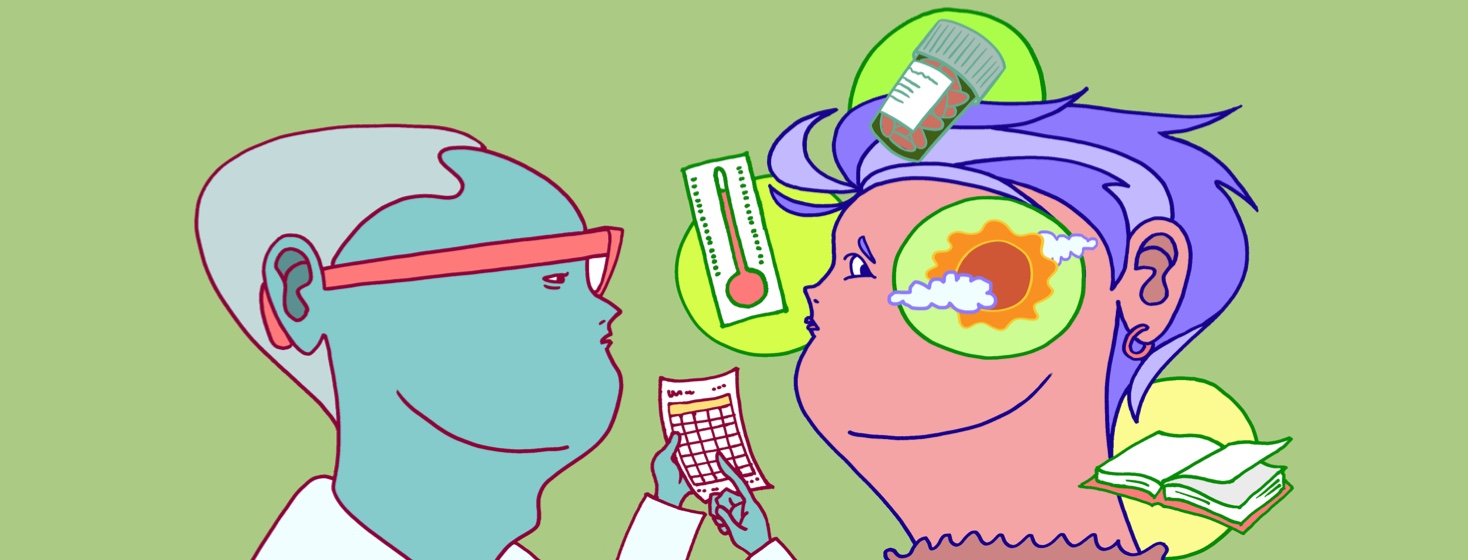Understanding Body Temperature Changes in Psoriatic Arthritis
Psoriatic arthritis (PsA) is an autoimmune disease that affects some people with psoriasis. About one-third of people with psoriasis might get PsA. PsA symptoms include sore and swollen joints and itchy skin rashes. It can also cause inflammation of the organs. Symptoms can last for a day or months and may be mild or severe. An outbreak of symptoms is called a flare.1,2
Your body temperature changes during the day. It varies with the weather, exercise, age, and sleep. People with PsA may notice more frequent changes in body temperature. They may also develop low-grade fevers during symptom flares. These temperature changes can have various causes linked to PsA or prescribed medicines.1-4
Featured Forum
View all responsesA normal body temperature is between 97 and 99 degrees Fahrenheit. A low-grade fever is slightly higher, between 99.1 and 100.4 degrees Fahrenheit. A person with a fever might also have chills, achiness, fatigue, or sweating. However, a fever is not always a bad thing. It can be a sign that your body is fighting off an infection.3,5
What is the link between PsA and fever?
There are several reasons why someone with PsA might have a low-grade fever. PsA is an autoimmune condition. The person’s immune system believes it is fighting inflammation or an infection.1,5
The immune system starts to attack the body’s own healthy cells, mistakenly thinking they are the problem. This creates more inflammation. A fever can be both:1,5
- The body’s reaction to the inflammation
- A sign that the immune system is working to fight the inflammation
Some medicines prescribed to manage PsA can cause a fever. And some low-grade fevers can be connected to a lack of sleep. For example, if itchy skin or joint soreness during a flare disturb your sleep, you may develop a mild fever.3,5
A fever may also be linked to other health conditions that people with PsA are more likely to have. These conditions are called comorbidities. Examples include:2,5
- Inflammatory bowel disease
- Metabolic syndrome
- Heart and blood vessel (cardiovascular) disease
It could be the weather
Changes in the weather can affect body temperature in anyone. Hot or cold weather causes the body temperature to rise or fall. But for people with PsA and other skin or joint conditions, changes in air moisture and weight (barometric pressure) can also cause discomfort.3,4
It is not just a myth that cold, damp weather can make your joints ache. One study showed that wind, humidity, and pressure all affect pain levels. For people with PsA, knowing the weather forecast can help you take action to ease aches and pains.4
What is erythrodermic psoriasis?
Erythrodermic psoriasis is a rare type of psoriasis that can upset body temperature and the body’s fluid balance. Only about 2 percent of people with psoriasis will develop this type. But it can be life-threatening, increasing the risk of:6
- Heart failure
- Pneumonia
- Severe infection
Symptoms of erythrodermic psoriasis include strong chills or swelling in the feet and ankles. It is important to seek immediate medical help for this condition. Treatment focuses on restoring normal body temperature and fluid levels. You might have to have a hospital stay to be treated.6
How to treat a fever
The best way to treat a fever will depend on what is causing it. If the weather is the cause, dressing appropriately will help joint pain and body temperature. Over-the-counter medicine such as acetaminophen can also help.3-5
If medicines prescribed for your PsA are causing the fever, your doctor can advise you. In certain cases, changing your medicine may help. A doctor can also help you to manage any comorbidities that may be causing a fever.1,5
Managing PsA may help to reduce symptom flares. Your doctor might recommend:1
- Medicine
- Gentle exercise
- Sleep
- A healthy, balanced diet

Join the conversation